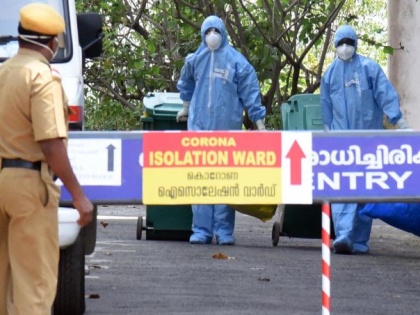7 ways in which Kerala has managed to stop the spread of Coronavirus
By Lokmat English Desk | Published: March 5, 2020 10:08 AM2020-03-05T10:08:01+5:302020-03-05T10:08:45+5:30
In the beginning of February, Kerala had the first and only three confirmed cases of coronavirus in India. Three ...

7 ways in which Kerala has managed to stop the spread of Coronavirus
In the beginning of February, Kerala had the first and only three confirmed cases of coronavirus in India. Three medical students who had returned from Wuhan in China, the epicenter of the disease. In less than a month, all three patients were treated successfully and discharged. Kerala has since been able to contain the spread of the deadly virus through strict protocols that seek to educate the people without ringing alarm bells. Let us have a look at how the state has managed to stop the spread of the deadly virus.
Airport screening
Passengers arriving from abroad would be given a health card each in which they have to list their travel details and health condition. Before, proceeding to immigration they would need the details checked and stamped at a special desk. For travelers from China, Hong Kong and other affected regions the protocol is to shift them to a transit room where the body temperature is measured. Each of Kerala's five airports is linked to ambulance and emergency-response service in district hospitals. Any passenger who has fever, cough or sore throat is to be immediately shifted to the linked hospital and from there a message would be passed to the district medical office. This office immediately contacts the family members of the passengers If the travelers have no symptoms,they are allowed to go home, after a strict check up by the health team.
Campaigns and awareness drive
A well executed awareness drive campaign has helped to curb the spread of the virus in the state. The campaign focuses on basic hand and respiratory hygiene, including a tissue or flexed elbow to cover one's nose and mouth while coughing and sneezing. Standard prevention protocol also includes use of personal protective gears depending on risk.
Infection protocol measures
All private medical centers and labs have been asked to strictly adhere to the recommended infection protocol. Around 215 mental health teams have reached out to almost 2,600 people in home quarantine to alleviate the anxiety and also to counsel family members and people in the neighbourhood. Use of breathalysers has been suspended for a while and police personnel have been directed to use other methods to detect drink driving.
Rumour - busting
District police chiefs have implemented strict laws and action against those found circulating fake news relating to the virus outbreak on social media.
Border checks
A team comprising doctors and other health care staff has been screening travelers entering Kerala by road.They use non-contact infrared thermometers to check body temperature and circulate pamphlets about precautions to be taken against the deadly virus.
Local intervention
After the first case was detected in the state the local decision making bodies across Kerala issued a directive on infection control. In a circular issued by the local self-government all local bodies were asked to prepare a list of people coming from places affected by the virus and of those in contact with such people. Meanwhile, helplines were setup to avoid panic among the people of the state.
Double check of blood donors
Blood banks across the state have been given a direct mandate to avoid collecting blood samples from those who have arrived from abroad recently. A directive has been issued to all blood-donor forums, groups and NGOs that conduct blood-donation camps to double check the travel history of donors before referring them